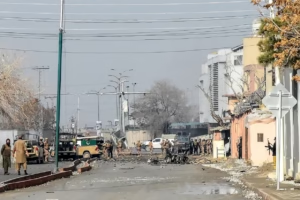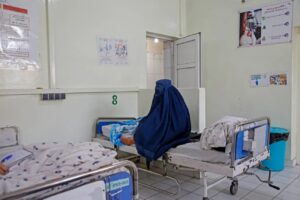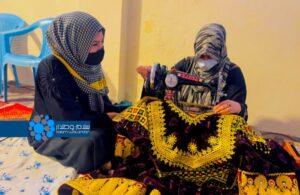KABUL (SW) – Officials at the Indira Gandhi Children Hospital in Kabul report a doubling in the number of children diagnosed with infectious diseases over the past two months.
Nazir Ahmad, head of the infectious diseases department at the hospital, stated that nearly 600 children were hospitalized due to measles, chickenpox, whooping cough, and typhoid fever during this period.
He said: “The number of daily visits of the measles patients is high, with 10 to 15 patients being hospitalized. Previously, there were fewer cases of measles, with 300 to 350 hospitalizations monthly. There are also many cases of whooping cough, and similarly, we hospitalize two or three patients with chickenpox each day.” Mr. Ahmad emphasizes that patients with measles constitute the majority of visitors.
Measles, chickenpox, whooping cough, hepatitis A, and mumps are common contagious diseases among children that increase with warmer weather.
Physicians attributed the rise in infections to low immunity among children and poor nutrition, highlighting timely vaccination and proper nutrition as preventive measures against these diseases.
However, Aqa Mohammad Shirzad, a pediatric specialist at the hospital, points out that the hospital is facing shortages of medical facilities and healthcare staff to treat patients with infectious diseases. He adds, “Rooms are limited; we have two or three patients per bed. Our resources are scarce and we cannot provide the level of care needed by patients because we have a shortage of healthcare staff and an overwhelming number of patients.”
The scarcity of medical resources and healthcare personnel, particularly in provinces, poses significant challenges to delivering healthcare services in Afghanistan, impacting patients access to treatment. Some caregivers, unable to access local healthcare services, are forced to transport their sick children to Kabul for treatment.
Noriya, a resident of Parwan province, brought her child to Kabul after contracting measles following a temperature spike. She says, “For seven days, he had a fever at home; he wouldn’t eat any food; now my child also has a fever and his whole body hurts. The provincial hospital had no beds and sent us to Kabul.”
Maiwand, a resident of Khost, also says, “It’s the ninth night since we came from the province; he coughs a lot and has measles, he also has a fever, and whenever he eats food, he vomits.”
However, the Ministry of Public Health does not provide any information regarding the number of children affected by contagious diseases or the ministry’s comprehensive prevention plans.






